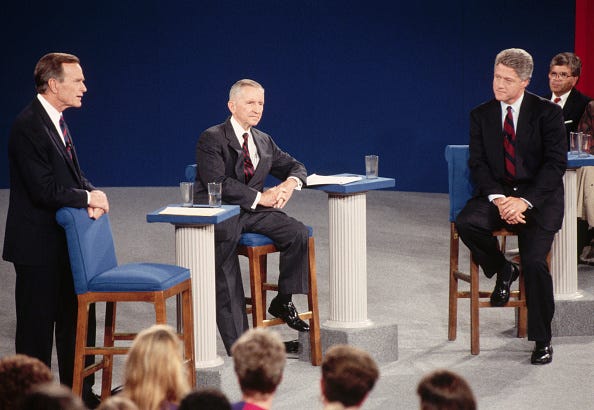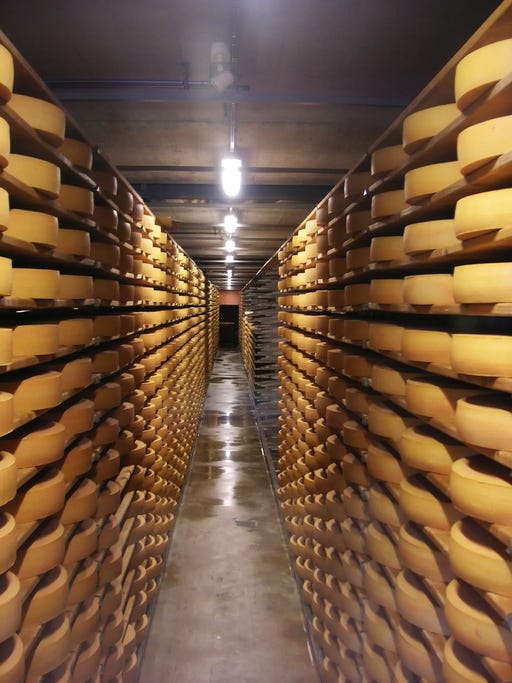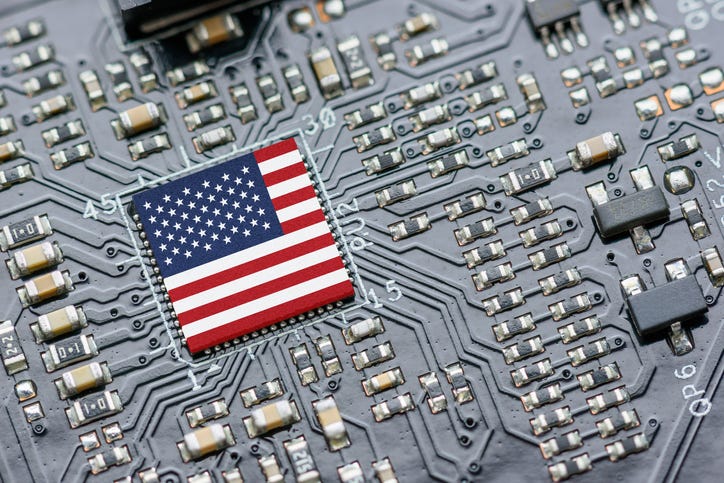How America Loses the Next War Part 4 of 5
Potato chips, computer chips—what’s the difference?
This is part 4 of a 5 part series on how America loses the next war.
Part I - The Coming DevOps War
Part II - The Army Can’t Push ISR
Part III - Chill out, we’ve had killer robots for years
The election of 1992 wasn’t looking good for George H.W. Bush. His reelection poll numbers had gone from a high of 90% coming off of Operation Desert Storm to 50% at the start of 1992. They would only go lower as America stumbled out of the "Operation Desert Storm" party, flagged down a cab, and was too hungover to make it into work the next day. The US economy was falling apart.
A standard presidential photo opportunity at the National Grocers Association was one of the many nails in President Bush’s coffin. President Bush was given a demonstration of National Cash Register’s checkout scanning technology - barcode readers. The same kind of barcode readers that supermarkets had used for the past 10 or so years.
Sources differ on President Bush’s reaction, but the New York Times claimed that President Bush was “amazed” at the scanner technology.
President Bush became vice president the same year that the supermarket scanners entered supermarkets - 1980. Vice Presidents usually don’t go grocery shopping by themselves, and President Bush’s chauffeured life showed his level of distance from the modern American family. Computer technology businessman Ross Perot and smooth-talking, saxophone playing Governor Bill Clinton stepped into the race

Then things got worse.
June of 1992 saw unemployment spike to 7.8%. At one point, Michael Boskin, who was part of President Bush’s Council of Economic Advisors, was rumored to have said:
"Potato chips, semiconductor chips, what is the difference? They are all chips. A hundred dollars' worth of one or a hundred dollars' worth of the other is still a hundred dollars.”

Maybe potato chips and microchips equate in a strict economic sense, but have you ever tried to defend your country with potato chips?
The US produced 77% of the world’s Steel in 1945. It had lend-lease agreements with more than 30 countries and dispensed some $50 billion dollars in equipment.
Computer chips are the steel of today, and the US has exactly 20 semiconductor foundries with a total output of 12% of the world’s semiconductors.
Taiwan produces over 60% of the world's semiconductors and over 90% of the most advanced ones. We can assume that chip production will halt in the event of a conflict with China - or even be destroyed by Taiwan to prevent them from being captured by China.
Do you remember the Strategic National Stockpile? It entered the public consciousness during the COVID-19 pandemic when state governors begged for masks, gloves and ventilators.
The US has strategic stockpiles of protective equipment, petroleum, and helium.
It even has stockpiles of cheese - specifically 1.4 billion pounds of cheese in a cave in Missouri.

But there is no strategic chip stockpile. This will put the US at a major disadvantage in replacing weapons and equipment that may be lost in a future conflict.
Consumer chips become obsolete in roughly three years. Industrial chips, such as the ones that may go into durable goods or weapons systems become obsolete in 10 years.
Vaccines become obsolete as well. So do vinyl exam gloves. While a semiconductor costs a lot more than an exam glove, it will also be much more difficult to manufacture during a global conflict.
The US needs to change the way it views semiconductors - they are a critical component of infrastructure and should be stockpiled for future use - no different than hospital beds or lifesaving drugs.
A strategic chip stockpile would aid the US in winning the next war by creating a reserve of chips that can be used reduce the lead time in manufacturing new high-tech weapons and systems.
It’s wasteful, but so is war.
Want to hear my lecture on how America will lose the next war? Meet me at the Texas Cyber Summit in Austin, Texas. Thursday, 28 September 2023 8:00 AM - Saturday, 30 September 2023.












I appreciate a good pun, "If we’re going to defend our country with cheese, we better have some sharp cheddar and a brie-lent strategy." Well done.
It appears we have not learned a lesson from the 90’s when a major chip manufacture burned down in Taiwan. They manufactured the majority of RAM chips for computers. There was a world wide shortage and did not recover for several years.